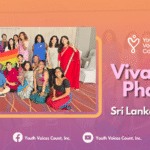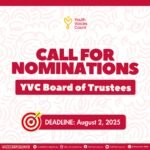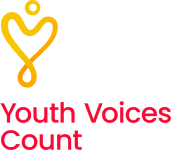Tan Fok Jun (Jeremy) is a young human rights activist from Malaysia. He currently works as the Youth Representative for Malaysia’s Global Fund Country Coordinating Mechanism and has previously worked with the Federation of Reproductive Health Associations, Malaysia. Jeremy is passionate about promoting the rights of the LGBTIQ+ community, sexual reproductive health and rights (SRHR), health promotion, and ensuring young people’s access to HIV prevention and treatment.
As part of his work, and together with other youth groups, Jeremy created a WhatsApp group for young people to reach out and seek information on COVID-19-related news, in particular, how the pandemic has impacted their access to HIV and SRH services. This online platform allowed young people living with and affected by HIV to have direct contact with outreach workers who were able to take on medication requests from the hospital to provide multi-month dispensing (3-months) of ARV to people living with HIV.
During the Movement Control Order (MCO), which prevented people from travelling during lockdowns, Jeremy was able to work with other organizations to supply ARVs to their clients. Because of the MCO, young transgender and sex workers communities could not move about, visit their clients, and earn a living. The consequences of lockdowns resulted in key populations relying on food aid programmes provided by community groups. Members of these community groups and organizations received special travel permits to move freely and bring in food and essential supplies for those in need.
Currently, the MCO is more flexible than before, so several community groups have launched food aid programmes for people who have lost their income or jobs. Jeremy and his colleagues continue to carry out dissemination programs on HIV awareness by creating digital content for young people to be more alert of HIV during lockdowns. Additionally, they were also able to contact university students who have been living in dormitories and equip them with IEC materials with information about services and counselling support.

While Jeremy was working for the Federation of Reproductive Health Associations, Malaysia, they had followed COVID-19 guidelines set by the World Health Organization and Malaysia’s Ministry of Health and began integrating COVID-19 protocols into their programmes. They established a government pandemic crisis management action plan, ensuring officers and staff were aware of safe-distancing rules, how to use Personal Protective Equipment (PPE) and COVID-19 testing referral services.

Due to the Movement Control Order, the service delivery of HIV services were restricted. To overcome this challenge, several youth organisations and Community-Based Organizations collectively wrote a letter to the Ministry of Health to request a special permit to continue community outreach and case management with supervision and guidance from the local health department.
During the pandemic, under the Differentiated HIV Service Delivery for Key Populations (DHSKP), the Global Fund provided financial assistance for grassroots-organization in Malaysia to purchase PPE. The help from different donors and institutions provided a leg up for organisations and civil society to carry out their work efficiently. Besides, the umbrella body for HIV organisation, the Malaysian AIDS Council, also provided technical assistance by linking grassroots organisations with the health department, ministry of health to receive support, such as easing reporting deadlines and programmes impacted by COVID-19.
Jeremy highlighted the advantages and drawbacks he faced while working online during the pandemic in Malaysia. During this time, he understood that marginalised communities had trouble with internet access and that there was a correlation between geographical and social-economic statuses. He says that community members who were financially struggling might not have enough internet data to engage in online workshops. In the training, transgender and sex worker communities also faced challenges in digital literacy, which affected their participation. To overcome these drawbacks, they tried to provide financial, including internet allowance for participants to obtain stable internet data packages. At the beginning of each meeting/training, they guided community members with demonstrations on how to use online communications platforms like Zoom or Google Meet. This helped ensure their meaningful engagement and participation on interactive tools like Jamboard and Mentimeter.
Access to condoms and lubricants has been a critical issue raised by several young key populations. Because of the MCO, young people stuck at home with their partners have reported higher sexual activity without using condoms and lubricants. Many key populations often rely on the supply of free condoms from community-based organisations. The consequence of this has placed young people, especially key populations, at a highly vulnerable stage of infection with HIV and STIs. To combat this problem, Jeremy and his colleagues began disseminating HIV prevention kits, including condoms and lubricants and delivering them to their homes. Likewise, community members who require HIV testing services were also offered the option to contact their community-based tester to schedule an on-site testing service.


Access to information and services to HIV, such as counselling, referral to services, community engagement, is still highly needed. But Jeremy believes that what needs to be strengthened is ART medication delivery to PLHIV. Rather than having them collect it in person, hospitals or NGOs should consider delivering it to them by postal service, significantly reducing the risk of COVID-19 transmission. He also specifies the importance and needs for more youth-friendly health establishments to be in place so that young people feel safe and confident to seek health services. When it comes to educational or health intervention approaches, Jeremy believes that there needs to be a hybrid model in place depending on the context of each KP group.
Jeremy is also working with Youth LEAD and Frontline AIDS to develop a situational analysis of young people’s engagement in the Global Fund process, like the Country Coordianting Mechanisms. Consulting government officials, the CCM secretariat, youth/YKP community, and other stakeholders will allow him to lay the foundations of community experiences, especially during COVID-19. The evidence in this research will be used as an advocacy tool in their respective funding request or research.
Quote: “HIV self-testing is inevitably an essential service that needs to be incorporated into the HIV response in Malaysia. Young PLHIV and LGBITQ+ need to be given the practical and convenient option of HIV self-testing. The surge of homophobia in this country will impede young people from visiting hospitals and clinics out of fear of stigma and discrimination.”







